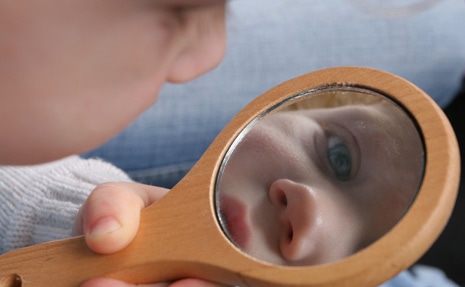 In this edition of LIFEadvice, life coaches Kim Giles and Nicole Cunningham share their top 20 tips for being a better parent.
In this edition of LIFEadvice, life coaches Kim Giles and Nicole Cunningham share their top 20 tips for being a better parent.
Before we get into our top 20 tips, we want to caution you to not get overwhelmed by the long list. You don’t have to master them all this week. You might want to just work on one thing each week, or go through the list and pick two to practice this week. We are going for small steps of progress at a time.
The truth is, parenting is one of the hardest, most guilt-producing challenges on the planet. No matter how hard you try, you may always feel like it wasn’t good enough. So, don’t even try to shoot for perfection, just shoot for a little growth every day. Also, remember some children are a lot more challenging than others, and cut yourself some slack if you have a challenging child.
Here are our 20 tips to be a more awesome parent:
1. Teach your kids that all human beings have the same value and our value can’t change.
Make this the everyday language in your home. This will help all of you to be bulletproof, avoid judgment and have more confidence and self-esteem.
2. Trust yourself.
You are the only one entitled to know what is right for your child. Listen to your gut daily and follow your instincts.
3. Trust them and let them be different from you.
They will choose their perfect journey and it may mean making choices you wouldn’t make or approve of. When this happens, honor their right to be different from you and still have your love and admiration for the good soul they are.
4. Give lots of validation and praise on the right things.
Don’t praise their appearance, performance or property as much as you praise their kindness, honesty, love and other admirable qualities. Help them see those as who they are.
5. Do not compare yourself or your kids to others.
Teach them we are all incomparable and on a totally unique journey, so it makes no sense to compare.
6. Help your child learn to problem-solve.
Instead of solving their problems, ask questions like “Well what could you do? What options do you have?” until they figure out how to solve things on their own. Teach them to brain storm and to trust themselves that the answers will come, if we just keep looking.
7. Take care of yourself.
A happy parent is an awesome parent, so have a life and activities outside of being a parent (if you need them) and don’t feel guilty about that. The more fulfilled you are in life, the more balanced your parenting will be. Don’t make the kids your entire existence or you will lose yourself when they grow up.
8. Let most stuff go.
Choose your battles carefully, ignore garden variety annoying kid behavior, don’t create drama by getting involved in every little thing. Work on having thicker skin and more patience by trusting that things will work out.
9. Practice what you preach.
Kids lose respect for adults fast when we don’t do the very things we tell them they should do. Don’t yell at them for yelling, for instance. Watch the things you say and make sure you are teaching by example.
10. Let them fall, fail and be disappointed.
Your job is to prepare them for life in the real world and protecting them from all sadness does not prepare them. Let them make mistakes, forget things, lose things or fail now, while you can use the experience to teach them how to deal with emotions and the tough stuff of life.
11. Ask questions and listen more than you speak.
What your child needs from you most is to know he/she is important, valued and good enough. Spend time asking lots of questions about what they think, feel, see and experience. Help them have a place to process emotions and experiences, without advice or lectures. Just let them think things through and figure things out on their own. It takes more time, but it prepares them to be capable adults.
12. Treat them with respect and get respect back.
If you disrespect your children and what they think and feel, they won’t respect you either. Respect must be earned by modeling mature, kind, respectful behavior yourself.
13. Have one-on-one dates with each child regularly.
And do #12.
14. Work on being happier, more fulfilled and content yourself.
The single greatest thing you can do for your family is work on your own self-esteem and fulfillment in life. A happy parent is more patient, loving and wise.
15. Talk about uncomfortable topics often.
One conversation about sex, drinking or drugs won’t do it. Kids need to know you are a comfortable and safe place to discuss the hard stuff of life, all the time. If you aren’t comfortable, seek some professional help yourself.
16. Do one thing at a time.
Don’t try to help with homework while you cook. Do homework first and give them all your attention, then make dinner. You will not only make them feel important, but you will feel less stressed, too.
17. Limit screen time for everyone — even you.
Too many hours a day looking at a screen isn’t good for anyone. Plan outdoor activities and interact with real, live people daily.
18. Apologize and show them vulnerability.
When you make a mistake, react badly or lose your temper, own it and say you’re sorry. Kids learn great life lessons when adults are vulnerable and humble enough to apologize and then try harder. Don’t expect them to improve themselves if you aren’t, too.
19. See parenting as your classroom.
We often believe it’s our job to educated our children (which it is), but it is also their job to educate us. Your children are the teachers who will facilitate your greatest lessons in patience, forgiveness, tolerance, self-control, love and trust. See every parenting moment as your perfect classroom today, and you will be amazed how much more mature you behave.
20. Learn about your child’s core fears and values.
These are the factors that drive all their behavior. When you understand what they value most (people and connections, tasks and performance, things and money, or ideas and beliefs) you will understand their key motivator and your best leverage for discipline. Understand their core fear (either failure or loss) and you will understand their trigger and what brings their worst behavior out. While you are at it, learn about your own fears and values too, so you can understand how you are different. This level of understanding about each other is a game changer.
Also remember — you don’t have to be a perfect parent to be the perfect parent for your child. You may mess up a bit (we all do), but choose to believe it’s the exact way that they are supposed to learn, for their perfect journey to unfold. Trust that things will work out, and be patient and loving with both of you.
You can do this.





